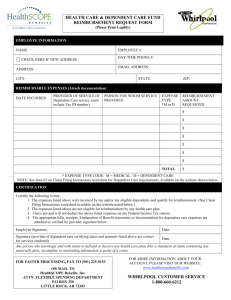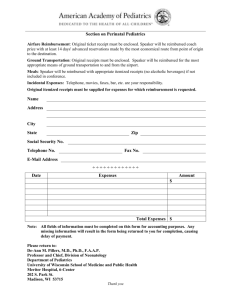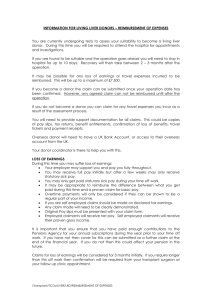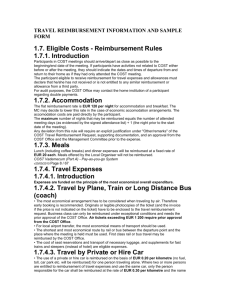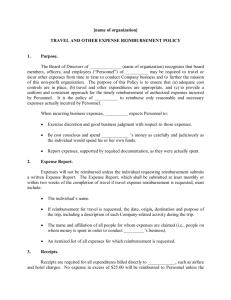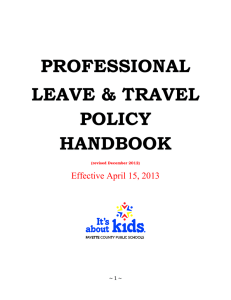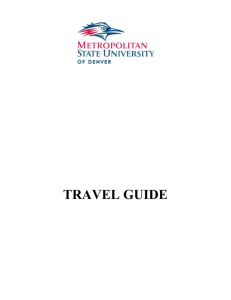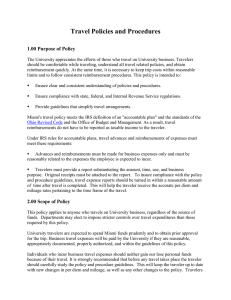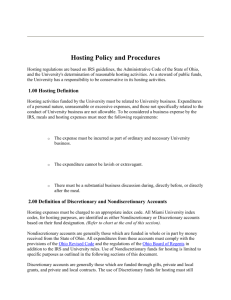Travel Expenses Scheme
advertisement
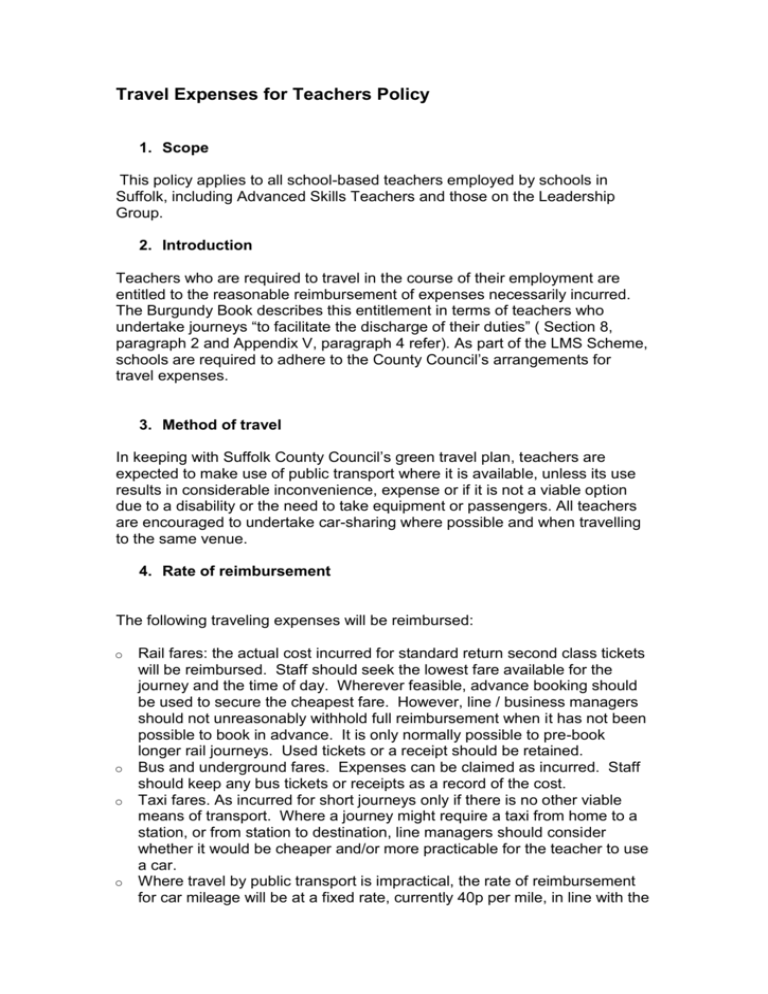
Travel Expenses for Teachers Policy 1. Scope This policy applies to all school-based teachers employed by schools in Suffolk, including Advanced Skills Teachers and those on the Leadership Group. 2. Introduction Teachers who are required to travel in the course of their employment are entitled to the reasonable reimbursement of expenses necessarily incurred. The Burgundy Book describes this entitlement in terms of teachers who undertake journeys “to facilitate the discharge of their duties” ( Section 8, paragraph 2 and Appendix V, paragraph 4 refer). As part of the LMS Scheme, schools are required to adhere to the County Council’s arrangements for travel expenses. 3. Method of travel In keeping with Suffolk County Council’s green travel plan, teachers are expected to make use of public transport where it is available, unless its use results in considerable inconvenience, expense or if it is not a viable option due to a disability or the need to take equipment or passengers. All teachers are encouraged to undertake car-sharing where possible and when travelling to the same venue. 4. Rate of reimbursement The following traveling expenses will be reimbursed: Rail fares: the actual cost incurred for standard return second class tickets will be reimbursed. Staff should seek the lowest fare available for the journey and the time of day. Wherever feasible, advance booking should be used to secure the cheapest fare. However, line / business managers should not unreasonably withhold full reimbursement when it has not been possible to book in advance. It is only normally possible to pre-book longer rail journeys. Used tickets or a receipt should be retained. o Bus and underground fares. Expenses can be claimed as incurred. Staff should keep any bus tickets or receipts as a record of the cost. o Taxi fares. As incurred for short journeys only if there is no other viable means of transport. Where a journey might require a taxi from home to a station, or from station to destination, line managers should consider whether it would be cheaper and/or more practicable for the teacher to use a car. o Where travel by public transport is impractical, the rate of reimbursement for car mileage will be at a fixed rate, currently 40p per mile, in line with the o rest of the County Council. Any variations in the rates payable will be publicised to schools. As this rate of reimbursement is at the level determined by the Inland Revenue, no tax liability exists in respect of the sum reimbursed and payments can be made locally by individual schools. o Reasonable car parking expenses will be reimbursed on production of a receipt. o Motor Cycles: as follows: Cc band Up to 150cc 151 – 500cc Over 500cc Pence per mile 19.97p (18.85p) 24.00p (22.69p) 24.00p (24.00p) 5. Insurance Teachers using their vehicle in the course of their employment must ensure that their car insurance policy covers business journeys undertaken on behalf of their employer. 6. Home to work travel Home to work travel may only be claimed if a teacher has to return to school after the normal school day, for example for a parents’ evening. 7. How to claim Teachers must obtain their Headteacher’s agreement in advance for any journeys to be undertaken for which a claim will be made. Individuals are free to determine the method of travel which they choose to use but should do so in the knowledge of the basis which will be used for calculation of reimbursement. The decision as to whether public transport is impractical should be taken by the appropriate line manager. Decisions should be made in a fair and equitable manner to ensure fair treatment of staff within the school and throughout the Local Authority. Provided that the claim for mileage expenses is not for home to work mileage, which is taxable, schools may pay teachers from petty cash, in accordance with their arrangements for petty cash. Home to work mileage must be claimed on a claim form PPS51. The member of staff will be reimbursed in the following month’s salary. April 2008
